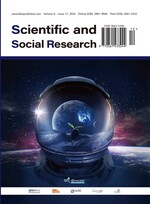Abstract
In order to better cultivate students’ innovative abilities to meet future challenges and promote teachers to continuously advance curriculum and teaching method reforms, this paper proposes a new model of “evidence-based” learning in large-unit primary school science, which encourages students to think and explore like scientists. This model includes “puzzle-based” evidence collection to map the biological comprehensive spectrum, observe and discover biological characteristics, and strengthen inductive and deductive thinking, “ladder-based” evidence collection to explore the laws of the material world and develop abstract logical thinking, and “spiral-based” evidence collection to create universe simulation models and explore the mysteries of the unknown world, enhancing innovative transfer thinking. Such learning is conducive to forming preliminary philosophical concepts in primary school students and fundamentally promoting the development of students’ scientific inquiry and practical abilities, thereby implementing core literacy.
References
Eighteen Departments Including the Ministry of Education, 2023, Opinions on Strengthening Science Education in Primary and Secondary Schools in the New Era, published May 26, 2023. http://www.moe.gov.cn/srcsite/A29/202305/t20230529_1061838.html
Developed by the Ministry of Education of the People’s Republic of China, 2022, Curriculum Standards for Primary School Science in Compulsory Education. Beijing Normal University Publishing Group, Beijing.
Wang Z, 2020, An Empirical Study on the Improvement of Primary School Students’ Observation Ability Through Nature Notes, thesis, Central China Normal University.
